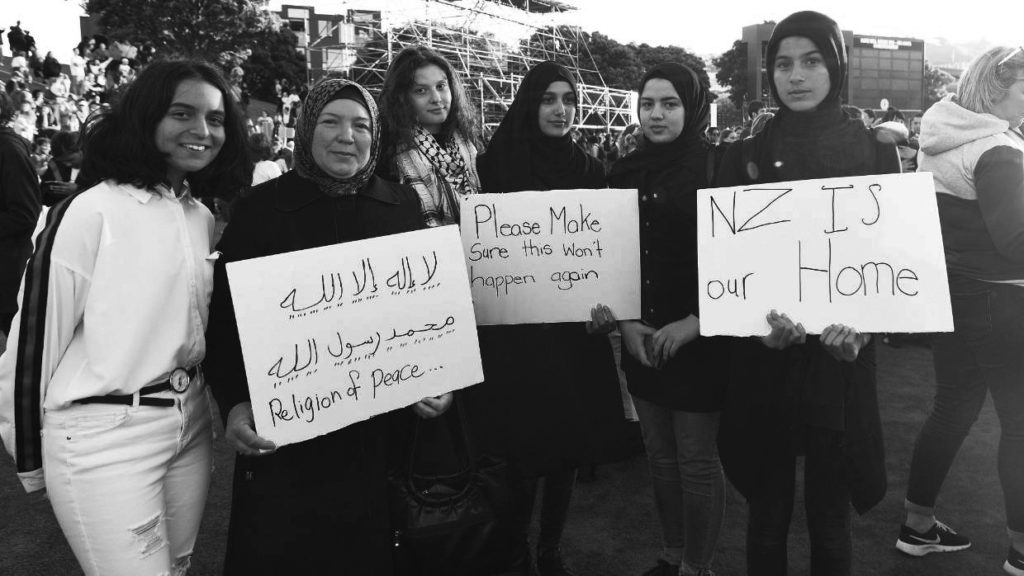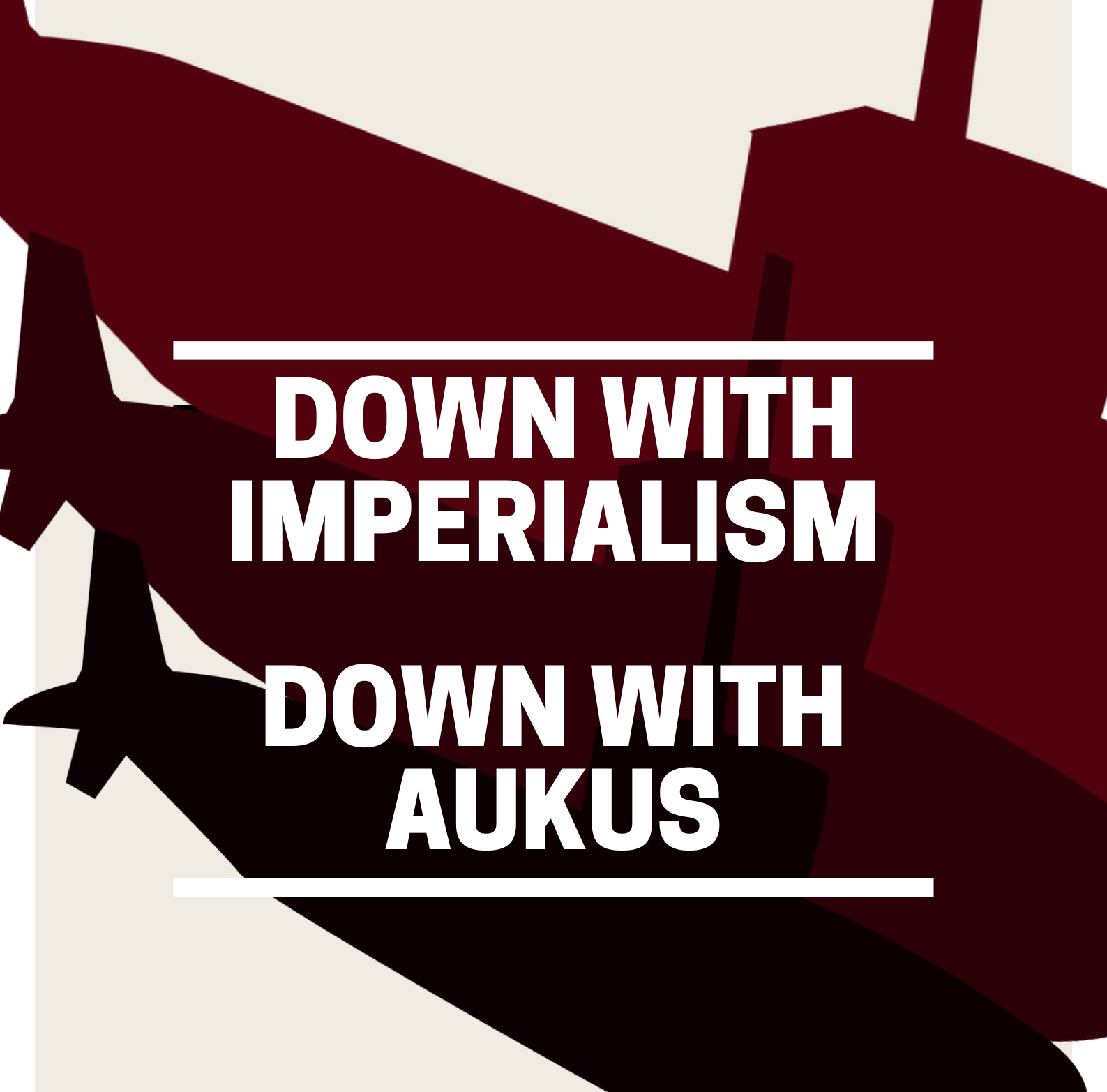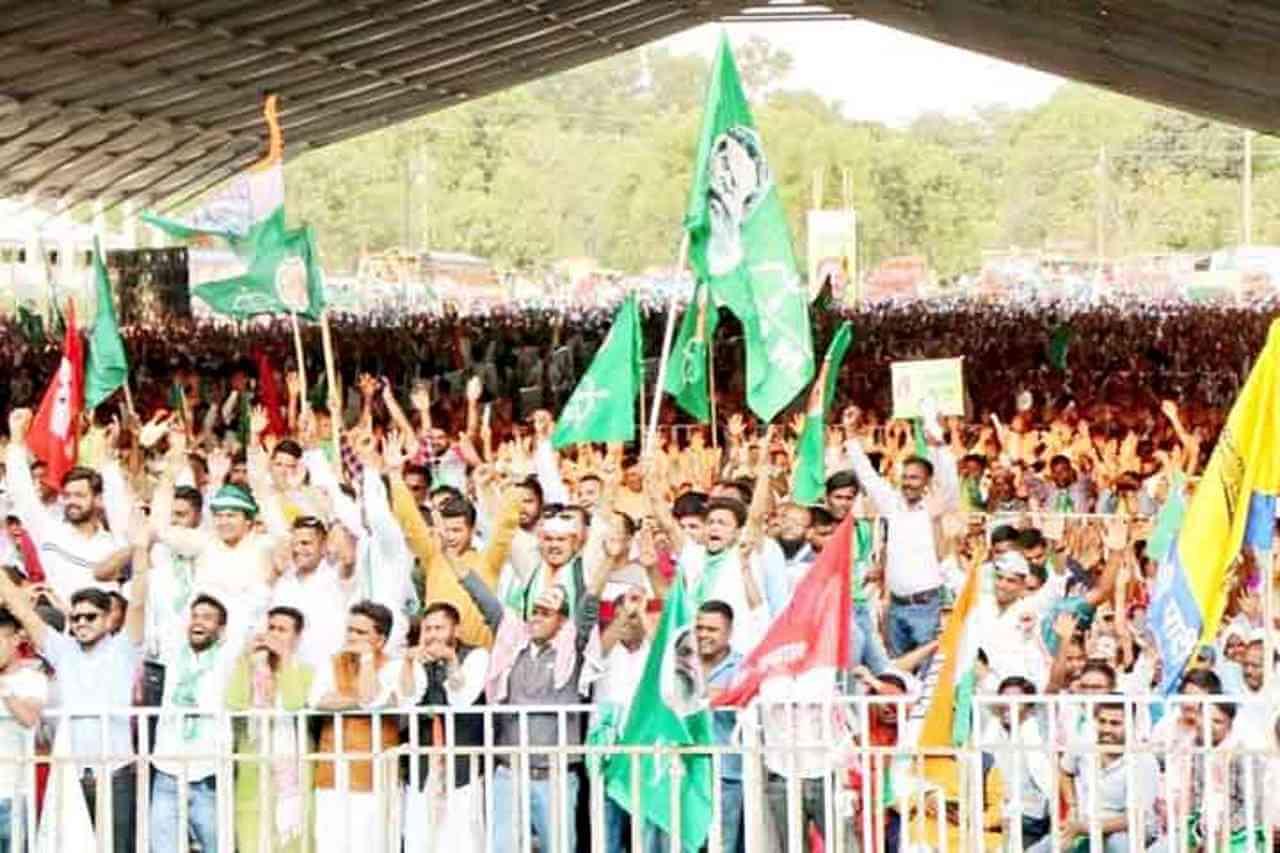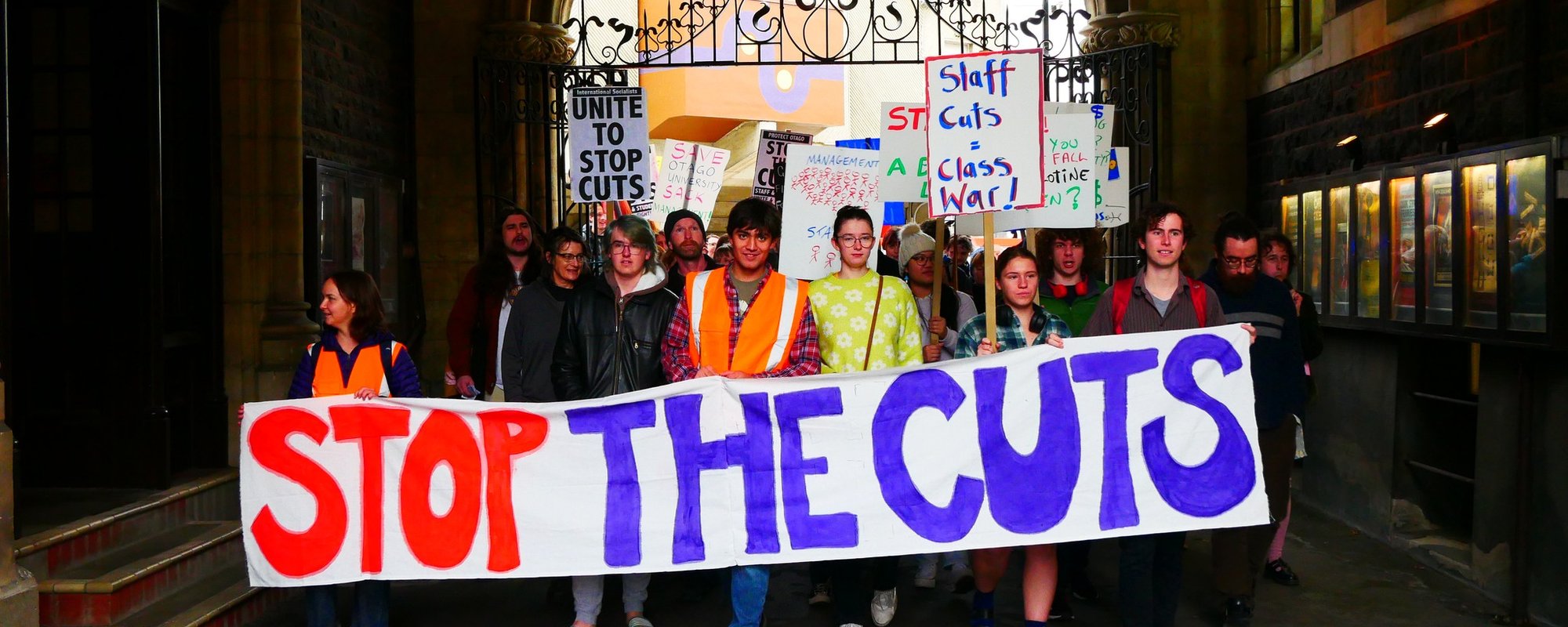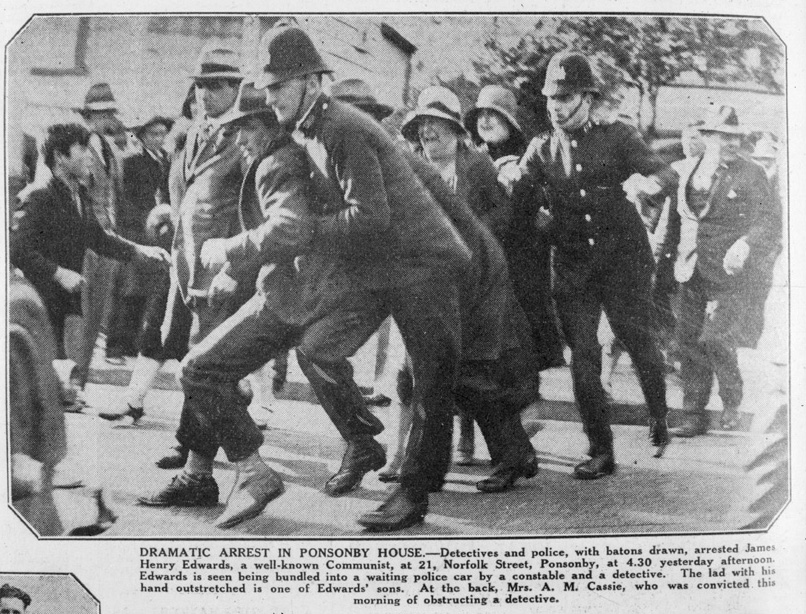This talk was presented to the Pōneke branch of the ISO on 17 March 2020 by Romany Tasker-Poland, a teacher, trade unionist, and member of the ISO.
We are speaking about a year after the massacre at the mosques in Christchurch, as commemorations are being held. Every day is bringing out more information about this crime, the events leading up to it, the aftermath, and the ongoing activity of white supremacists in NZ. I am going to offer some analysis of islamophobia in NZ, drawing on the events of the past year, and offer some thoughts on how to fight it.
I am going talk about white supremacists and the far right who are organised in New Zealand, with thanks to Mark from Wellington Against Racism and Fascism for a lot of that information. But I am also going to focus on mainstream islamophobia and its roots, and particularly on the actions and inaction of the government.
Islamophobia is Racism
To start off with what should be obvious: islamophobia is racism. These discussions can sometimes be derailed by the claim that “islamophobia isn’t racism because Islam isn’t a real race.” the correct response to this is that there is no such thing as a real race. Race as a category isn’t something that has scientific validity. It is a tool used to group disparate people together into categories and make those categories seem natural and ahistorical.
To be more specific, since the war on terror began, ideas about Muslims have been propagated through politicians, through the media, though the military. So despite being a diverse faith with followers all over the globe, Islam now exists in the popular imagination in such a way that people think they have a clear picture of who Muslims are, where they come from, what they look like, what they believe, how they act. This is something that has been deliberately propagated so they are made to seem different from people in “the west” and that difference is treated as inherent. In other words, they are racialised. Islamophobia is racism.
Far Right is Mobilising in NZ
It is not surprising that white supremacist myths have flourished in NZ. This is an elaboration on the idea of races is the idea that the white race is superior and destined to rule over the others. NZ was founded by people who held these sorts of beliefs. It was founded as a white settler colony displacing tangata whenua by people like Edward Gibbon Wakefield who believed it was the mission of the “white race” to dominate in the pacific.
In modern times, fascist, neo-nazi and skinhead groups have operated, such as the National Front which formed in the 1970s and for many years has tried to organise “flag day” rallies across the country right up until recent years.
More active now are newer “identitarian” groups. These groups have a slick, quasi-respectable public image but as we have seen, members and leaders of these groups are capable of carrying out violence. Key to their beliefs is this idea of a “clash of cultures”. A myth that pits an imaginary (white, Christian) “western culture” against various imagined threats including progressive politics (which they call “cultural Marxism”), Islam (seen as a monolithic “civilization” in opposition to the west) and Jewish conspiracies. The ones in NZ are inspired by identitarian movements in Europe, were emboldened by the election of Trump. In NZ they’ve recently been given an extra boost by visits of right-wing figures from the international right-wing community like Jordan Peterson, Lauren Southern and Stefan Molyneux – figures which all hold racist right-wing views with degrees of radicalism. The most active of these up until Christchurch last year was the Dominion Movement, which “disbanded” following March 15, but largely that seems to mean it’s just regrouped and reconstituted itself. So that’s now been overtaken by a group called Action Zealandia, which, particularly up in Tāmaki Makaurau / Auckland has been postering, leafletting, putting up stickers as well as having a presence online.
There’s a really clear connection between the man who martyred those in the Christchurch mosques last year with this movement. He has close links to Austrian identitarian leader Martin Sellner. And these groups have been more active since Christchurch.
Researcher Paul Spoonly estimates that there are between 60 – 70 groups and somewhere between 150 and 300 core right-wing activists in NZ (many of these will be very small groups, in other words). The far right have been active since last year, so they haven’t muted their activity, if anything they have been emboldened. Days before the anniversary an image appeared online of a man outside one of the attacked mosques, wearing a balaclava and with a threatening message. This man is believed to be linked with AZ as well as another hate group called Wargus Christi.
Netsafe has found an increase in hate speech online. Anjum Rahman of the Islamic Women’s Council (IWC) says that “the attack certainly emboldened people who want to spread hate.”
There have been increased reports of white supremacist activity to the police and intelligence agencies. This is positive as it means now there is more awareness than there was, but also possibly indicates a rise in activity. Police have now started recording instances of offences that seem to be motivated by hate, raising the question of why this wasn’t done before. Between 30 – 50 people are being actively investigated in relation to posing a terrorist threat, a higher number than in previous years – which raises a lot of frightening questions in its own right.
The idea that these ideas should simply be tolerated or debated is fast losing credibility, but there is still some clinging to the idea that we can legislate these politics out of existence or rely on the police to round these people up. Experience shows that the best way to defeat these groups is to organise and confront them on-mass, in the street. This doesn’t mean we need to hit the gym and invest in ski-masks, because there is safety and power in numbers. Thousands turned up to vigils and marches in the wake of the Christchurch attack. If even close to those numbers were to turn up whenever these people try to organise then they would start to find their work impossible. How we confront the organising online is another question of course, but their ability to translate that into real life action can only be confronted with real life action.
Government’s Actions and Inactions
Information is currently coming out from a Royal Commission that details how for years the Islamic Women’s Council tried to raise the alarm about growing islamophobia and were ignored. The issues they were trying to raise with current and previous governments were education, employment, marginalisation, increasingly negative perceptions of Muslims and, in the lead-up to the Christchurch shooting, escalating threats against Muslims and against mosques. While pouring money into security and intelligence to counter the “war on terror,” there was no resourcing for the Muslim community. The utter indifference and contempt with which their concerns were heard is best illustrated by an incident in early 2017, when the IWC had finally managed to secure a meeting with the dept of the PM and cabinet. As IWC’s Anjum Rahman describes “we were putting our case forward in good faith, in the expectation that it would make a difference… in one particular meeting there isn’t even any record of the meeting, and that particular department didn’t even know who we had met with, and there is no record of what was discussed, let alone action taken.” This is institutional racism.
In light of this, we have to look at the government’s response since Christchurch. There was plenty to praise in the immediate aftermath, but one year on it is clear to see that overall the response has been lacking. They have focussed on technical issues like social media and free speech laws, making a show of taking the far right seriously, while failing to address the racism that underpins much of their own politics. Even the gun laws, while more proactive, that’s still a very narrow and technical approach to solving the problem of racism.
I want to say a little about hate speech laws and we can talk about this more in discussion – and I want to say that this is not in itself a solution to islamophobia and racism. For one thing, these laws can be turned against us once they are in place. Hate speech laws are often then used to target Palestinian activists or anyone who wants to criticise the activities of Israel. So, I believe the Wellington City Council had to shut down suggestions people were making that they take up a particular position that would label any criticism of Israel as antisemitic.
And also consider that the very institutions that we would be empowering are the very ones that not only fail the Muslim community and other marginalised communities, but actively target and harass them. This goes for other branches of the state. In their dealings with the state the IWC was confronted with indifference, inaction, pettiness, suspicion and hostility that went, in their words, right to the top.
My case is that to counter islamophobia we need an anti-racist movement focussing on migrant rights and anti-militarism in particular. There is an argument to be made that the government is tinkering around the edges of a broken public service that needs serious reform, as we can see from the evidence being put forward from the IWC. But there is a deeper issue here too: the purpose of these institutions is to carry out the directives of the state, and the state’s purpose is to serve the ruling class. And islamophobia serves the interests of the ruling class. It serves their interests in two ways: as a way to facilitate the exploitation and scapegoating of migrants, and as a justification for imperialist wars.
One of the obstacles that prevented the IWC from speaking out about government indifference sooner is the knowledge of the backlash. That if they were to try to go public with this, the response would be: if you don’t like it go back to your own country. That is incredibly accurate. That is exactly what MPs this year have been saying to immigrants who have raised complaints. When migration policies were introduced that were unfair to Indian migrants, and when these migrants raised issues about this, Shane Jones’ response was to go on racist rants to tell them, literally, to go back to their own country. In fact, all the parties in the government coalition have played with anti-immigration politics for political gain in the recent past. This is a difficulty for us because it is much harder for our class as a whole to organise and demand more when sections of our class are being told they should be grateful to be here, and that if they complain they may be kicked out.
War on Terror
The connection between the imperialist projects in the middle East – spearheaded by the US and backed up by countries like Australia, like NZ – the connection between this an islamophobia is really well known by now. So it’s worth pointing out that these are projects that our government has been actively involved in and continues to be involved in. We need to demand that no support is given, that troops are withdrawn, that not one cent is spent in support of imperialist wars.
We need to mobilise just against the far right, but we also have to fight constantly for the rights of migrants and refugees, and against war and militarism is we want to be making a difference against islamophobia.
I’m going to end and lead us into discussion with the words of Anjum Rahman:
“A lot will depend on the NZ public and how much they are willing to stand by us… it’s all very well to come and lay flowers at the mosque and have a hug and a cry, but what are you actually going to do to counter fascism in this country and to counter white supremacy.”

